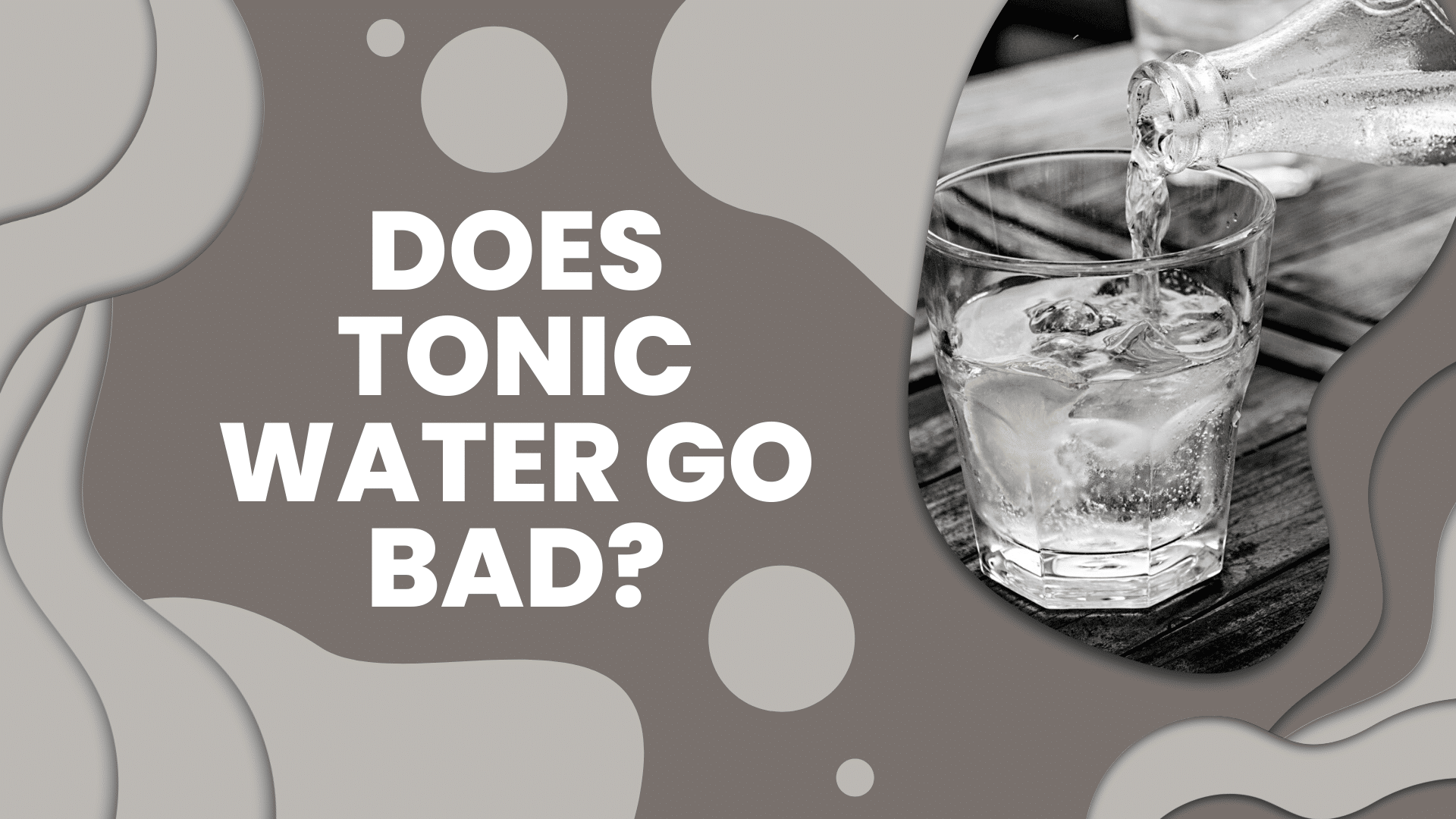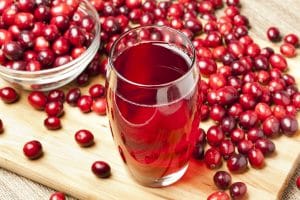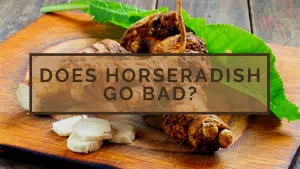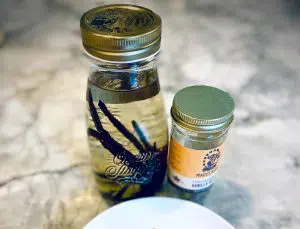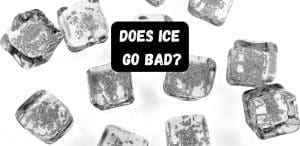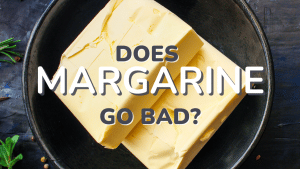Does Tonic Water Go Bad?
Important Note: When you buy through our links, we may earn a commission. As an Amazon Associate we earn from qualifying purchases. Content, pricing, offers and availability are subject to change at any time - more info.
You’ve probably come across tonic water as one half of the familiar cocktail gin and tonic, and it is a refreshing soda with a unique taste. However, if you’re used to sweeter-tasting beverages, you might wonder what tonic water is meant to taste like. And more importantly, how you would know if tonic water has gone bad.
Tonic water is a flavored, carbonated water with a long shelf life. If kept unopened, tonic water is safe to drink up to 9-12 months beyond the listed expiry date. Opened tonic water kept in the refrigerator will be best for 2-4 days after; longer than that, it will lose flavor and become flat.
Although tonic water has added bubbles thanks to the carbonation process and has been flavored with a sugar and quinine syrup, it should remain shelf-stable for many months, even long past the expiry date listed on the bottle. Once you have opened the bottle of tonic water, there is more chance of bacteria entering the liquid, so it’s best not to keep it too long. You should store opened tonic in the fridge and drink it within about four days before the flavor and bubbles are gone.
- Does Tonic Water Go Bad?
- What is in Tonic Water?
- Tonic Water Ingredients
- What Does Tonic Water Taste Like?
- Substitutes for Tonic Water
- How Do You Know If Sealed Tonic Water Has Expired?
- How Do You Know If Opened Tonic Water Has Expired?
- Storing Tonic Water
- Can Expired Tonic Water Make You Sick?
- Adverse reactions to quinine
- What is the Benefit of Drinking Tonic Water?
- Can Children Drink Tonic Water?
Does Tonic Water Go Bad?
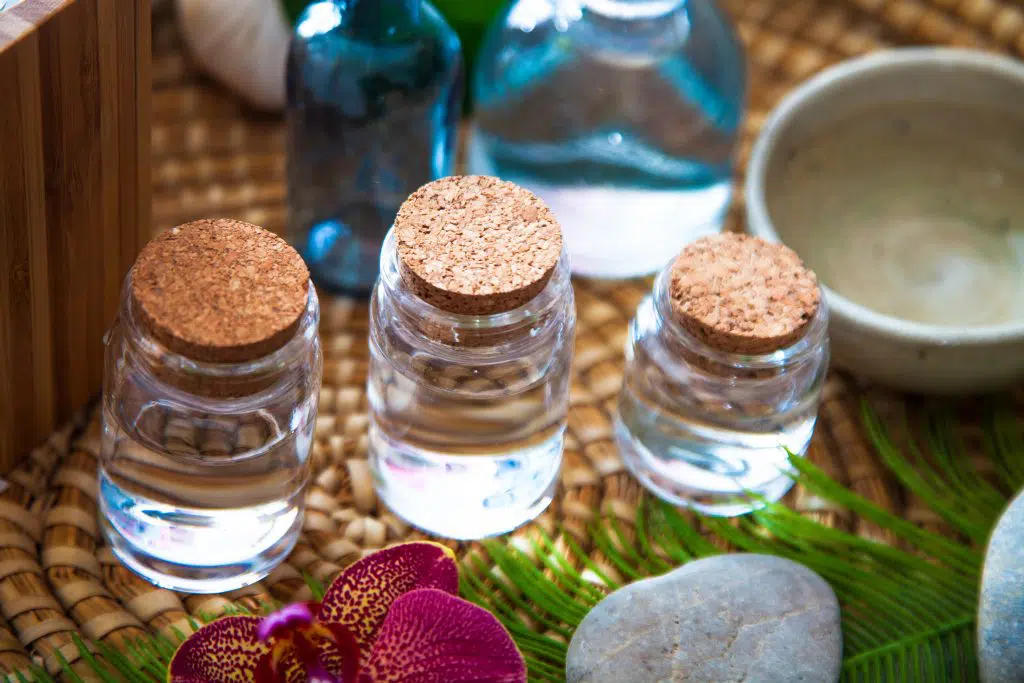
Any water left stagnant and open to bacterias, mold, and dirt will go bad, and tonic water is no different. Tonic water is typically sealed in a bottle or can, and as long as the seal remains tight and secure and the bottle or can show no signs of damage or rust, the tonic water should be fine to consume for many months.
Containers of tonic water and other sodas should have an expiration date marked on them. You can find this printed on the bottle cap, or on the side of the tin, or on the label. The printed expiration date is not a hard and fast rule of when your drink will go off; it is an estimation from the manufacturer as to how long the drink will remain at its best quality. These dates are sometimes called ‘Best By’ or ‘Best Before’ dates.
Use ‘Best Before’ dates as a guideline to how long your tonic water will last if stored unopened in a cool, dry place. The estimate is that usually, tonic water will still be potable nine to twelve months after the ‘Best By’ date. If you see any rusting on the can, or if the tonic water looks cloudy or has gone a strange color, use common sense and dispose of it rather than taking the risk to drink it.
What is in Tonic Water?
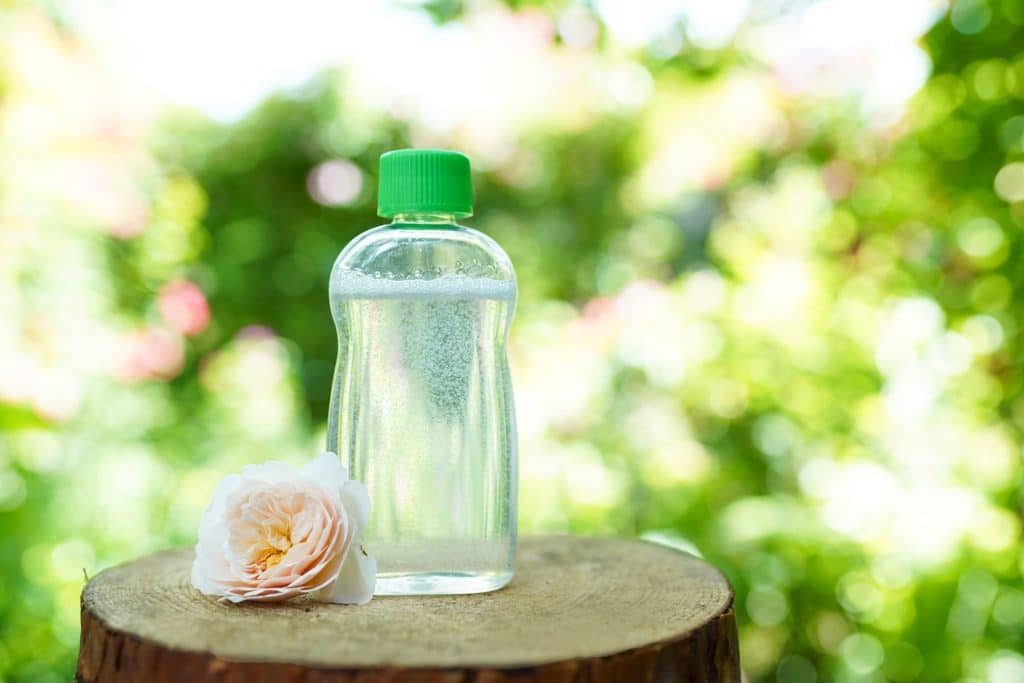
Tonic water is a carbonated soda that has been flavored with sugar or sweeteners, various botanicals, and most importantly, quinine. The quinine gives it its unique, dry, slightly bitter taste. Quinine was famously used to treat malaria and is still considered a medicinal product, so the amount used in tonic water is regulated.
Most commercial tonic water is clear, but natural tonic water where the quinine is made from cinchona bark can have an amber color. One interesting thing about tonic water is that its quinine will make it appear fluorescent under ultra-violet light and glow blue.
Suppose you are being trated for malaria with quinine. In that case, doctors recommended you don’t drink either tonic water or bitter lemon as they both may contain traces of quinine that could alter your medication dosage.
Some people are highly allergic to quinine, so the quinine is always strictly labeled in tonic waters.
Tonic Water Ingredients
Different companies will use slightly varying ingredients to make their tonic water, so it’s worth checking each to see if any are potential allergens. The most likely ingredient to cause an adverse reaction is the main ingredient of tonic water; quinine.
Ingredients list:
- Carbonated water
- Sweeteners: sugar, corn syrup, agave syrup, honey, aspartame
- Acidity regulators:
- Preservatives: 221
- Quinine from cinchona bark
- Flavorings: bitter orange oil, lime oil, lemon peel extract, sodium citrate, botanical flavors such as juniper essence.
Since many commercial companies may use honey-based sweeteners, you may want to take care when shopping for tonic water if you are vegan. Often sodas have hidden ingredients that make them unsuitable for vegans, and tonic water is no exception. It’s best to search online for a reputable company that makes vegan tonic water if you are concerned.
If you prefer, you can make your tonic water at home, and cinchona bark can be bought online from Amazon. When making your tonic water, be careful with preparation and storage, and ensure your utensils and bottles are sterile to avoid any contamination.
Store-bought tonic water usually has preservatives that help it keep longer, so bear this in mind when storing your homemade quinine tonic syrup.
What Does Tonic Water Taste Like?
Due to the bitter flavor of quinine, tonic water has a crisp, slightly bitter, refreshing taste. These days tonic water has less quinine and has been sweetened with sugars or other sweeteners. The addition of citrus flavors and other herbal bitters makes tonic waters from different companies have different flavor profiles.
If you’re used to sweeter drinks, tonic water may be relatively dry and bitter. However, this does not mean that tonic water is low-calorie. Due to the use of sweeteners, most commercial tonic water has on average 124 calories in 12 fl oz (about one can or bottle).
The bitter taste of tonic water may make it difficult for you to determine if your tonic water has gone bad or if this is how it’s meant to taste. You should stay safe by using the expiry date as a guideline and drinking opened refridgertated tonic water within four days.
Substitutes for Tonic Water
If you cannot drink tonic water due to the quinine or the taste but still would like to enjoy a drink like gin and tonic, you could use a substitute drink as a mixer. Use sparkling or seltzer water, and add some suitable flavorings to help mimic the dry, slightly bitter taste of tonic water.
Suggested flavorings
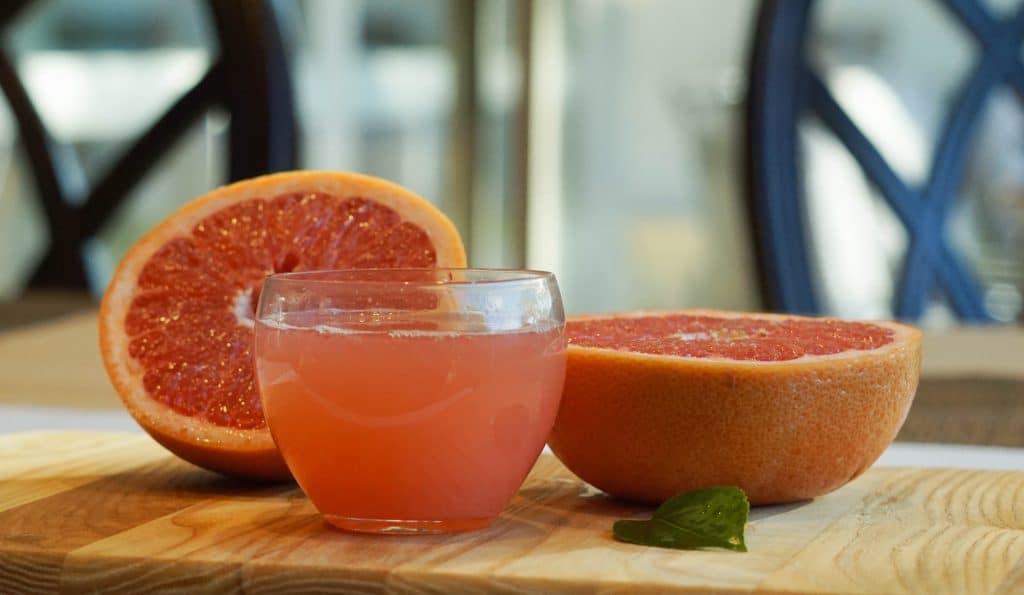
Tonic water uses botanicals and citrus flavors to help mask the bitterness of the quinine. With this in mind, some good flavoring alternatives are fresh lime juice, citrus flavorings, and a few drops of aromatic botanical bitters such as Angosturas or orange bitters.
Other suggestions in cocktails if you are not fond of the bitter taste of tonic is to use grapefruit juice, plain carbonated water, ginger ale, or bitter lemon.
How Do You Know If Sealed Tonic Water Has Expired?
Usually, tonic water does not go bad, but instead, it loses its flavor and becomes lower in quality. Tonic water is ordinarily fine for consumption for up to a year after the printed ‘Best By’ date. However, especially if the tonic water has been opened, dirt, mold, and other contaminants can get into the container and spoil your drink.
If you can see any soiling or other contaminants in your water, it’s best to dispose of it. If the container is leaking, rusted, or seems to have changed shape dramatically by being dented or bulging, you should dispose of it.
How Do You Know If Opened Tonic Water Has Expired?
Other signs to look out for are smell or color changes. While many tonics are clear, tonic water that uses quinine made from cinchona bark instead of artificial flavors will have a natural light amber color.
While it’s unlikely that your tonic water will make you ill, it’s still best to dispose of it if the color has changed or smells strange. If the tonic water’s taste has changed, you will want to avoid consuming the drink for safety reasons.
If you have opened your tonic water, it will begin to lose bubbles and flavor, and the taste quality will drop. It’s best to drink your opened tonic water within two days. The gas will have escaped by the fourth and fifth day, and your tonic water will be flat. While not unsafe to drink, this does make it less appealing.
Homemade tonic water will not have preservatives, such as are in store-bought tonic water. If you do not plan to use your tonic water in a large batch, it’s best to keep the quinine syrup separate and only add it to the carbonated water as needed.
Storing Tonic Water
Unopened tonic water should be stored in a cool, dry place, such as a pantry or cupboard that is not near a source of heat. While temperature changes are unlikely to affect the taste, they may affect the carbonation. PET bottles are manufactured and designed to withstand changes in pressure, but it’s still possible for bottles and cans to explode under heat.
Tonic water, like any soda, should never be stored in the freezer. When frozen, the carbonated water will expand, causing the bottle to explode or the lid to burst.
Once opened, tonic water should be kept in the refrigerator for it to remain at its best quality for longer. As soon as the bottle’s seal is broken, the water’s carbon dioxide begins to escape, and tonic water loses its effervescence. As the tonic water becomes flat, it also loses its fizz and its flavor.
You should consume your refrigerated tonic water for quality reasons within two days. Keep your fridge temperature settings between 38-40 F, as higher temperatures will encourage the growth of bacteria.
Can Expired Tonic Water Make You Sick?
It’s doubtful that expired tonic water will make you sick unless it has been contaminated with mold or bacteria.
If previously unopened tonic water from an undamaged container makes you sick, the most likely culprit will be one of the ingredients.
Quinine has been used for many decades as a medicinal extract to treat malaria and leg cramps, but this does not mean it is entirely safe. Some people may have an allergic reaction to quinine – even the minute amounts in tonic water.
Adverse reactions to quinine
- Thrombocytopenia – low blood platelet count
- Neutropenia – low white blood cell count
- Anemia – low red blood cell count
- Disseminated intravascular coagulation – abnormal blood clotting
- Acute renal failure
- Liver toxicity
- Neurological abnormalities
What is the Benefit of Drinking Tonic Water?
There is no real benefit to drinking tonic water as so much sugar is added to help cut the bitter taste of quinine. The amount of quinine added to modern tonic water does not present any medical benefits, though consuming too much can lead to some unwanted side effects. If you drink a lot of tonic water, you may experience stomach cramps and nausea, so best stick to only a few drinks.
As mentioned earlier, drinks that contain quinine, such as tonic water, should be avoided if you are on any quinine medication, such as those used to treat malaria. An excess of quinine can cause blood and kidney problems that may be long-lasting.
Despite the taste, most tonic water contains a lot of sweeteners and adds to your daily calorie count. The sugar in just one serving of tonic water exceeds the recommended daily allowance of sugar as suggested by the American Heart Association.
If you are trying to reduce calories, switch to a light or diet version of tonic water, which uses low-calorie sweeteners such as aspartame instead.
Can Children Drink Tonic Water?
While, as you’ve seen, it’s unlikely that tonic water will go bad and contains no alcohol, it is still not recommended to give tonic water to children. Pediatric experts suggest that you avoid giving children any drinks or foods that may contain quinine, as it may have adverse effects on blood sugar. Especially if your child has diabetes, tonic water’s quinine and sugar content should be avoided.
Tonic water is a refreshing, dry alternative to those who don’t like their drinks overly sweet, and the herbal taste is appealing in many cocktails. Commercial tonic water that’s appropriately stored is unlikely to go bad, but always take care to check the expiration dates and the general quality of your soda before using tonic water in your drinks.
